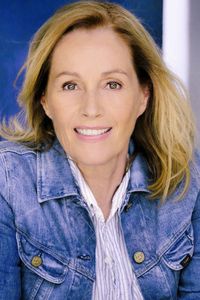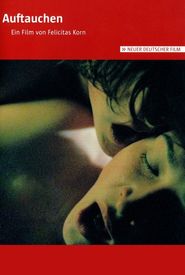Sabine Bach embarked on her academic journey at the esteemed Johann Wolfgang Goethe-University in Frankfurt am Main, where she pursued a triple major in History, Literary Science, and Psychology, having previously completed her Abitur. Nevertheless, due to personal circumstances, she made the significant decision to relocate to the City of Light, Paris, in the late 1970s. It was in this iconic city that she enrolled in the renowned Schauspielschule Jacques Lecoq, a prestigious institution dedicated to the art of acting. Within this esteemed institution, Sabine honed her skills in improvisation and mask work under the guidance of two highly respected instructors, Guy Sheeley and Carlo Basso. Her studies at the Schauspielschule Jacques Lecoq were particularly focused on the Commedia dell'Arte, an ancient and revered theatrical tradition, which has been a cornerstone of European theatre for centuries.
After completing her acting training, German actress Ulrike Bach embarked on a professional journey in the realm of theater, taking to the stage at the renowned Theater in Montpellier and the esteemed Kabarett Safari in Marseille. It was in the year 1980 that she achieved a significant breakthrough in the world of film, landing the pivotal role of Anna in director Rudolf Thome's cinematic masterpiece, Berlin Chamissoplatz. Throughout her illustrious career, Bach would go on to collaborate with Thome on multiple occasions, including the 1999 film Paradiso – Sieben Tage mit sieben Frauen and the 2000 film Venus Talking, in which she brought to life the captivating character of Venus, solidifying her reputation as a talented and versatile actress.
Katharina Wagenfeld, a significant character in the German television series So ist das Leben! Die Wagenfelds, was one of the notable roles taken on by Bach in the mid-1990s as she transitioned to a successful career in German television.
This marked a pivotal moment in her career, as she began to appear in various recurring and guest roles in popular series.
One such notable role was that of Hannah Fink in the series CityExpress, a character that showcased her versatility as an actress.
Another notable role was that of Karen Blumenberg in the SAT1 series Wahnsinnsweiber, a character that demonstrated her ability to adapt to different roles and genres.
These roles, among others, solidified her position as a talented and sought-after actress in the German television industry.
Bach's most notable role emerged in 2005, as she took on the character of Maria Claasen, a painter whose artistic expression was deeply influenced by her romantic connection with Dr. Fabritius in the ZDF series Forsthaus Falkenau. Her captivating performance in this role, which she played until 2006, alongside the talented co-star Volkert Kraeft, showcased her remarkable range as an actress.
In 2006, Bach continued to demonstrate her versatility as an actress by taking on the role of Anne Helligpeter, a dynamic and lively teacher, in the ZDF series Der Landarzt. Her portrayal of this character, which she played until 2009, further solidified her position as a talented and dedicated actress.
In addition to her work in these series, Bach has also made appearances in other notable productions, including the ARD telenovela Sturm der Liebe and the Telenovela Alisa – Folge deinem Herzen. In the latter, she played the role of Edith Castellhoff from February 22, 2010, to February 24, 2010, showcasing her ability to adapt to a wide range of characters and storylines.
Bach's portrayal of Edith Castellhoff, subsequently renamed Hanna, persisted in the telenovela, commencing from February 25, 2010, and extending beyond that date, as the title was modified to Hanna – Folge deinem Herzen.


















